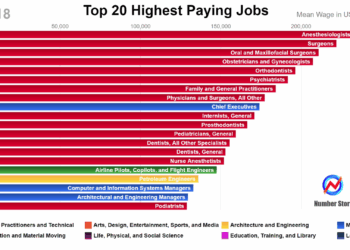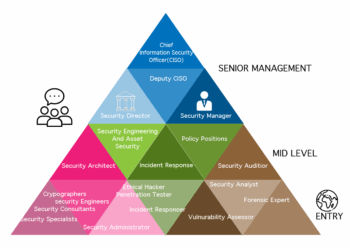Embark on the journey of entering the realm of data science careers without prior tech experience. This introduction sets the stage for an enlightening exploration of the necessary steps to kickstart your career in this dynamic field.
Providing insights on the essential aspects of transitioning into data science roles, this guide offers a comprehensive roadmap for beginners looking to make their mark in the industry.
Research and Understanding
To start a career in data science without a tech background, it is essential to conduct thorough research and gain a basic understanding of the field. This will help you grasp the core concepts and skills required to succeed in data science roles.
Tips for Researching Data Science
- Explore online resources such as websites, blogs, and forums dedicated to data science to stay updated on industry trends and developments.
- Attend webinars, workshops, and conferences to network with professionals in the field and gain insights into the latest advancements in data science.
- Join online communities like LinkedIn groups or Reddit forums where you can interact with experienced data scientists and seek advice on how to kickstart your career.
Importance of Understanding Core Concepts
Understanding the core concepts of data science is crucial as it forms the foundation of your knowledge and skills in the field. It allows you to analyze data effectively, derive meaningful insights, and make informed decisions based on data-driven findings.
Resources for Learning Data Science
- Enroll in online courses on platforms like Coursera, edX, or Udemy to learn essential data science skills such as programming languages (Python, R), statistical analysis, machine learning, and data visualization.
- Read books like "Python for Data Science For Dummies" by John Paul Mueller and Luca Massaron or "Data Science for Business" by Foster Provost and Tom Fawcett to deepen your understanding of data science concepts and applications.
- Explore tutorials on websites like Kaggle, Towards Data Science, or DataCamp to practice hands-on data science projects and enhance your technical skills.
Fundamentals Learning
To excel in data science jobs without a tech background, it is crucial to focus on developing essential skills and knowledge in statistics, mathematics, and programming languages like Python or R.
Essential Skills for Data Science Jobs
- Understanding of basic statistical concepts such as probability, distributions, hypothesis testing, and regression analysis.
- Proficiency in mathematics, including linear algebra, calculus, and optimization techniques.
- Ability to work with large datasets and apply data manipulation and cleaning techniques.
- Strong problem-solving skills and critical thinking to analyze and interpret data effectively.
Basics of Statistics and Mathematics
- Statistics involves the collection, analysis, interpretation, and presentation of data. It is essential for making informed decisions based on data-driven insights.
- Mathematics plays a crucial role in data science, especially in algorithms, modeling, and understanding complex relationships within data.
- Key concepts like mean, median, mode, standard deviation, correlation, and probability are fundamental in statistical analysis.
- Linear algebra helps in understanding how data is structured and processed in machine learning algorithms.
- Calculus is useful for optimization algorithms and building predictive models based on data trends.
- Having a solid foundation in statistics and mathematics will enhance your analytical skills and problem-solving capabilities in data science roles.
Developing Programming Skills
- Python and R are widely used programming languages in data science for data manipulation, visualization, and machine learning tasks.
- Learning Python libraries like NumPy, Pandas, Matplotlib, and Scikit-learn can boost your proficiency in handling data and building models.
- R is popular for statistical analysis and has packages like dplyr, ggplot2, and caret for data manipulation and visualization.
- Online resources, tutorials, and coding exercises can help you practice programming and improve your skills in Python or R.
Skill Development
To excel in data science jobs without a tech background, developing key skills is essential. One crucial skill is coding, which plays a vital role in data analysis, machine learning, and other data science tasks. Here's how you can enhance your coding skills for data science applications.
Practice Coding for Data Science Applications
Coding practice is crucial for mastering data science concepts and algorithms. Consider the following tips to practice coding effectively:
- Start with basic programming languages like Python, R, or SQL, commonly used in data science.
- Work on coding challenges on platforms like LeetCode, HackerRank, or Codecademy to strengthen your problem-solving skills.
- Practice implementing data structures and algorithms relevant to data science tasks, such as sorting algorithms, tree traversal, and graph algorithms.
- Collaborate with peers on coding projects to gain different perspectives and improve your coding proficiency.
Significance of Hands-On Projects
Hands-on projects are invaluable for applying theoretical knowledge to real-world scenarios and enhancing your skills. Here's why hands-on projects are essential:
- Help you understand data science concepts in practical settings and build a portfolio showcasing your work.
- Improve your problem-solving abilities by tackling complex data science challenges and working with real datasets.
- Provide opportunities to experiment with different tools and techniques, broadening your skill set in data science.
- Enhance your ability to communicate technical concepts and findings effectively through project presentations and reports.
Participating in Online Coding Challenges or Hackathons
Engaging in online coding challenges or hackathons is an excellent way to enhance your practical knowledge and problem-solving skills. Consider the following tips for participating in these events:
- Join platforms like Kaggle, DataHack, or GitHub to access coding competitions and hackathons focused on data science.
- Collaborate with other participants to work on challenging projects and learn from their approaches and strategies.
- Utilize online resources and tutorials to prepare for coding challenges and improve your proficiency in data science tools and libraries.
- Seek feedback from experienced professionals or mentors to enhance your coding techniques and strategies for data science applications.
Networking and Community Involvement
Networking and community involvement play a crucial role in the data science field as they provide opportunities for learning, mentorship, and knowledge sharing.
Connecting with Professionals
- Attend data science conferences, workshops, and meetups to meet professionals in the industry.
- Utilize social media platforms like LinkedIn to connect with data scientists and professionals for mentorship and guidance.
- Reach out to alumni from data science programs or professionals in your network for advice and insights.
Benefits of Joining Communities
- Join online data science communities or forums like Kaggle, Data Science Central, or Towards Data Science for support and knowledge sharing.
- Participate in discussions, share your projects, and learn from the experiences of others in the field.
- Collaborate on projects with community members to enhance your skills and build your portfolio.
Final Wrap-Up
In conclusion, navigating the path to data science roles without a tech background requires dedication, continuous learning, and active engagement with the community. By following the Artikeld strategies and tips, you can pave the way for a successful career in this evolving field.
FAQ Summary
What are the key tips for researching the field of data science?
Focus on understanding the fundamentals, explore online resources, and engage with professionals in the field.
How can I develop essential skills for data science jobs without a tech background?
Start by learning statistics, mathematics, and programming languages like Python or R. Practice coding and work on hands-on projects.
Why is networking important in the data science industry?
Networking helps in gaining mentorship, guidance, and opportunities for collaboration and growth in the field.
What are some ways to connect with professionals in the data science community?
Attend industry events, join online forums, and seek mentorship from experienced data science professionals.
How can participating in online coding challenges benefit skill development?
Online coding challenges enhance practical knowledge, problem-solving skills, and provide exposure to real-world data science scenarios.






